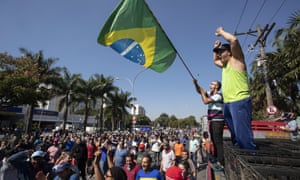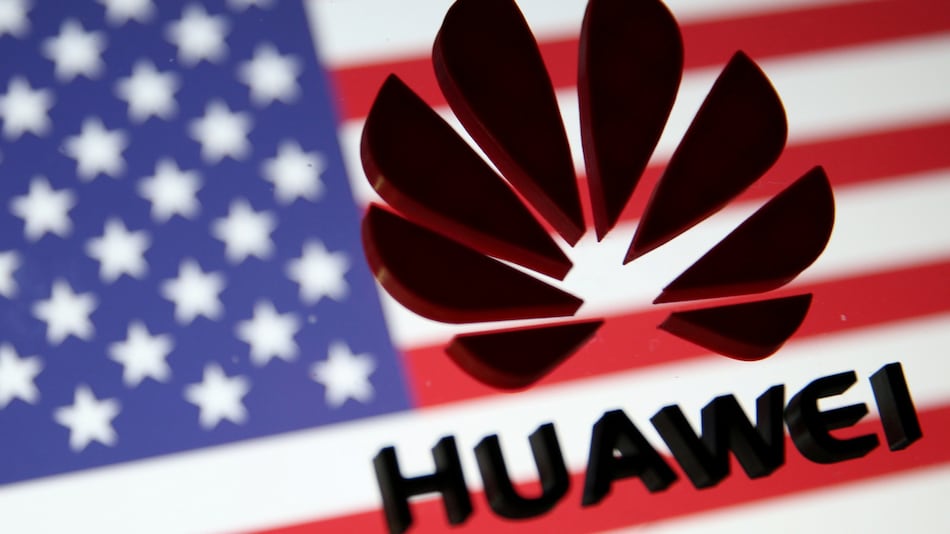
Hundreds of truckers and their supporters had gathered at a gas station on a highway near São Paulo, for a rally in support of a nationwide protest that has brought South America’s biggest economy to its knees.
But among the slogans and Brazilian flags were signs not usually seen at strike demonstrations: slung from a nearby overpass were banners calling for “military intervention”, a sign that this shutdown has taken on a political dimension all of its own.
As a nationwide truck strike reaches its 10th day, gas stations have finally begun to receive fuel deliveries and truckers have started drifting back to work – some unwillingly.
But hundreds of demonstrations have continued on highways across Brazil – and many of those still protesting are calling for a return to the rightwing dictatorship that ran Brazil for two sombre decades until 1985.
“We need help from the military to resolve our problems in Brasília, to remove the bandits from there and to put the house in order,” said one driver, Gabriel Berestov, 44.
What began as a nationwide truck strike over rising fuel prices has spiralled into a much broader protest over a range of issues including Brazil’s healthcare, education, roads, increasing violence and political corruption. .
The strike has wrongfooted both the left and right in Brazil’s fiercely polarised political climate. President Michel Temer’s conservative government has floundered as the shutdown suffocated the Brazilian economy, forcing harvests to stop and factories to suspend or reduce production, while wiping 15% off the share price of the state-run oil company Petrobras – responsible for fuel distribution and prices here – on Monday.
But what has disturbed many Brazilians is that some protesters have called for Temer to be removed from power by the armed forces.
José Lopes, leader of the Brazilian Truck Drivers Association, warned on Monday that the strike movement had been hijacked. “There is a very strong group of interventionists,” he told reporters. “They are people who want to bring down the government.”
The subject ricocheted around Brazil. On Tuesday, Temer told foreign journalists he saw “zero risk” of a military intervention. His minister of institutional security, Gen Sergio Etchegoyen, said the armed forces had no intention of intervening and that the idea was a “subject from the last century”.
The theme is deeply controversial in Brazil, which lived under a military dictatorship for 21 years, during which hundreds of regime opponents were executed and thousands more tortured.
Earlier this month a CIA memo emerged showing how Brazilian dictator Ernesto Geisel personally approved the summary execution of his regime’s enemies.
But the number of those advocating a return to dictatorship has grown in the wake of repeated graft scandals.
The presidential candidate Jair Bolsonaro, running second in polls, has said he would stuff his cabinet with generals if he won.
But some truckers espousing an armed intervention admitted they had little idea what that actually meant.
“We were young during the last military government,” said Israel Bandeira, 40, another São Paulo truck driver. “But everyone says it was better, depending on the life that you lived. If you were an honest family man, you were fine.”
Truck drivers were a minority among the few dozen protesters waving Brazilian flags and cooking pea soup near a refinery on the outskirts of Rio de Janeiro. Their numbers included an unemployed motorbike courier, a builder and Graziele Pacheco, 45, who works in distribution. “This is not a serious country,” she said. All of them called for a military takeover.
The trucker Valdemar Nunes, 50, was forced to return to work Tuesday under threat of losing his job. “If the country was governed by the military, it wouldn’t be in this mess,” he said.
Marcus Melo, a professor of political science at the Federal University of Pernambuco, said about 15-20% of Brazilians supported military intervention, but most people would prefer to wait for presidential and congress elections in October.
“Those who are still mobilising are militants and outliers,” he said. “We are in a situation of social convulsion.”
Source:-theguardian



